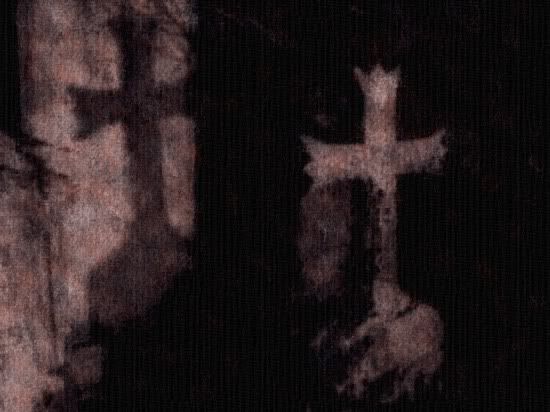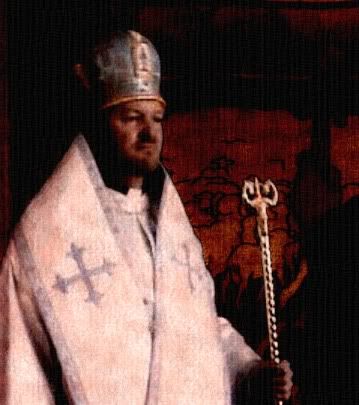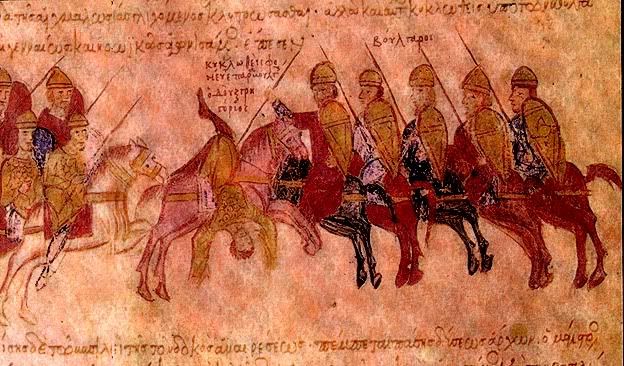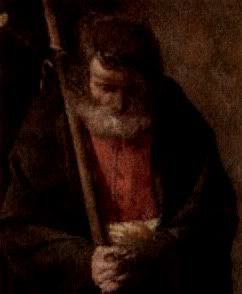Chapter 3
Chapter 3
Gyulyafehér, Hungary
Eve of the Feast of All Saints, 1067 AD
Zila's horse was getting nervous as the sky grew darker; though it was only noon, thick, ominous clouds made it as dark as twilight already on the road alongside the Maros river. Zila understood the horse's anxiety over the rapidly worsening weather, and had his own reasons for wanting to reach his father's house in Gyulyafehér as quickly as possible. However, he prevented it from going any faster than a trot. They had come a long way in the past two weeks, and he didn't want the dapple-grey gelding, his favorite horse, to founder a mere three miles from home.
They rounded the last bend of the gorge that hid the town from the view of the lower valley, and caught the familiar sight of the black tower looming over the town below like some great stone vulture waiting for a meal. Though he had lived in Fehér for nearly a year, Zila had never been entirely at ease there, and the tower had a great deal to do with it. There were mysteries about the tower that demanded explanations, and unlike the villagers, he was not content to simply let them remain mysteries.
However, the one man who seemed to know the most about the tower was the least likely to talk about it. Father Lázárus was quite loquacious on a myriad of other subjects, from theology to history to chess, but whenever the tower was brought up, he would not comment except to warn everyone to stay away from it. Zila thought that the old priest might actually be the one responsible for planting the idea of the tower's haunting into the heads of the villagers, though to what purpose, he could not imagine.
There were other things about the priest that were also mysterious. For a man who claimed to be a simple country priest, who had seldom left the village (a fact Zila verified by asking several other village elders, who all confirmed it), he had an astonishing range of knowledge. He claimed to speak, or at least to read, nine languages, and could quote obscure theological texts from memory. He knew all about the history of the village, and could tell stories of events that happened centuries prior with a level of detail one might expect from an eyewitness. And he was unbeatable at chess, a true master, despite the fact that nobody else in the village had played chess prior to the arrival of the Ákos family. How had he gained such skill without opponents to practice against? It defied logic, but there it was.
Zila had gone so far as to wildly speculate that the man was some kind of deathless Methuselah, who had lived through many ages. But some of the older villagers had known him as a child or as a young man, so that was clearly not the case. After he'd thought it through, Zila had been glad that he hadn't voiced that incredible theory out loud to anyone.
But still, the man was a mystery. The tower was a mystery. Zila sensed that the two were linked; solve one puzzle, and he'd solve the other.
These thoughts occupied him for the time it took him to reach the great stone-and-timber house of the Ákos family. He saw to his horse, and then, chilled to the bone, he headed for the main hall.
As he had hoped, the hall was warm and brightly lit, with the smell of dinner cooking. A small knot of women was gathered around one of the great fireplaces, sitting in chairs and talking quietly.
His wife, Anna, rose awkwardly to greet him. She was heavy with the couple's first child, and so moved slowly, with her hands on her back. Zila smiled and hugged her warmly. Though the marriage had involved politics and diplomacy as much as it had any affection between the two, Zila Ákos and Anna Ják had come to love each other very quickly. They were well-suited to one another.
"How is the baby?" he asked.
"Kicking up a storm," she told him.
"That's good, isn't it?" Zila asked, with all the concern a first-time father could display.
"Of course!" Anna answered, giggling. "Now be quiet, or you'll wake your new baby brother."
"Yes, I'm anxious to meet the little fellow," he said, smiling broadly. "Half a dozen farmers in the lower valley hailed me with the news as I passed." He turned and knelt beside his mother, who was holding a small, swaddled bundle in her lap.
"Quietly," Jolán whispered. "He's sleeping."
"Hello there, little man," Zila said softly. "Looks like you beat your nephew, or maybe niece, into the world by a few weeks. He was born when?"
"Three nights ago," Jolán told him. "We've named him 'Attila'."
Zila smiled. "I hope he's less of a terror to the realm than his namesake was." He stood back up, and looked around the hall. "Where is father?"
"In his study, with Father Lázárus, getting beaten at chess again," Anna said, giggling again.
"Quite handily, too," a voice said from the doorway. Máté Ákos strode into the room, with Lázárus Cornelius close behind. "Forty-seven moves. And then he had the gall to turn down the appointment to the bishopric that I offered him."
That caught everyone by surprise. "You offered him a bishopric?" Zila asked.
"He turned it down?" Jolán asked nearly simultaneously.
Father Lázárus raised his hands and said, "It was quite kind of Count Máté to offer me the position. But I am not the man for the job. As I have told you all before, I am just a simple country priest, and have no higher ambition than to serve God and tend to my tiny flock. I am not an administrator or a politician. So I must, respectfully, decline."
Zila shook his head, surprised, but his father spoke before he could voice his thoughts. "How went your mission to Temes?" he asked.
"Badly," Zila answered. "Imre was entirely agreeable to the match, but Count Elek flatly refused to sanction it. I'm sorry, Sugárka, I really am," he said to his sister, who had been sitting wordlessly by the fire the whole time. "I tried."
Sugárka nodded slowly, with a blank expression on her face. "I know you did, Zila," she said, voice barely above a whisper. "It's not your fault."
"We'll find you a husband, girl, never fear," Máté reassured her.
"No, you won't," she whispered back, tears beginning to fill her eyes. "You'll never find me a husband, and I'll never be married, and I'll never have babies, because we live in a tiny house in a tiny village in a county on the edge of nowhere and nobody even knows I'm here!" She burst into a fit of sobbing.
"Sugárka..." Máté began, concerned. This was completely unlike his daughter, who normally was the most even-tempered young woman imaginable.
But before he could continue, she cut him off, screaming "I hate this place! My sister got to marry a count, because she was in the capital at the royal court where people could see her! My brother got to marry the daughter of a duke, because he could go out looking for her! But nobody ever comes here, and I never go anywhere, and nobody's ever going to meet me! It's this because of this accursed place, and I hate it!"
With that, she abruptly stood and ran from the hall, sobbing.
Máté merely stood by the fire and stared at his boots. He said nothing, but everyone could see what he was thinking. Even as a nobleman, Máté was not rich or well-connected, and his two elder children had been incredibly lucky to make the matches that they had. Sugárka's prospects were indeed poor, though it was likely they would eventually find a young knight somewhere who would take her as a wife.
But when they heard the front doors of the house open, and then slam shut, Máté's head snapped up in alarm. "It's about to storm out there," he said. "She shouldn't be out there alone."
Without another word, Máté, Zila and Lázárus strode for the door, grabbed their cloaks, and headed out into the rapidly darkening night to find the girl before she did something foolish.
Sugárka ran blindly through the streets of the village, and then beyond its outermost buildings, not knowing or caring where she was headed. She was a healthy young woman, and so was able to run very far before she finally lost her breath and had to stop.
She was suddenly aware of what she had done. In her fit of unreasoning, hopeless depression, she had run up the trail to the ruins of old Roman fortress, and was now standing by the black tower. On the southeast corner of the small hilltop, where the tower stood, the hill was a sheer cliff dropping to rocks a hundred feet below.
She stood on the top of the crag, thoughts whirling through her head, as the clouds sank lower and enveloped her in dense mist. She had an idea. What if she climbed to the top of the tower, and then jumped to the rocks below?
Images of her future as an unwanted old maid passed through her mind. Anything would be better than that. Even an early death would be preferable.
"Well, why not?" she asked aloud, sobbing softly. There was really no reason not to do it.
"Why not?" she asked again. She walked unsteadily through the thickening fog towards the tower. She found the door, which was still as her father had left it a year before, pushed open halfway. She ducked under the low stone lintel, and found herself in the pitch-black interior of the tower.
She froze, unable to see anything. She had heard that there were stairways leading upwards, but in the inky darkness, she could not find them. There was no sound but the moaning of the wind outside and her own breathing.
A sudden draft of frigid air swept over her, and she shivered. Her fit of depression had left her as abruptly as it had swept over her, and now all she wanted was to find the way out of the tower and back home. But she had somehow gotten turned around in the darkness, and could not see the doorway. Without any light, she was trapped.
But then she saw a small glimmer of dim light from a few yards away. Two lights, in fact, small and reddish. She moved towards them, trying to see what they might be and hoping they could show her the way out.
Then she saw that they were not lights at all. They were eyes. Red eyes, filled with a fiery gleam, and staring directly at her.
She screamed, and turned and ran from them. She collided painfully with a stone wall, turned and ran in another direction, tripped over something unseen on the floor and fell headlong to the cold stone floor.
Later she could not remember getting up from the fall, and had no idea how she found the door. But she must have, because when Father Lázárus found her, she was outside the tower, running at top speed down the path from the old fortress. Her dress was torn and filthy, her face and hands were bloody where she had skinned them, and she was alternately sobbing and screaming "Red eyes! Red eyes!"
Lázárus wrapped her in his cloak and led the hysterical girl through the fog back to her home. When Sugárka woke the next morning, she remembered nothing. But the red eyes would return and haunt her dreams for years to come.
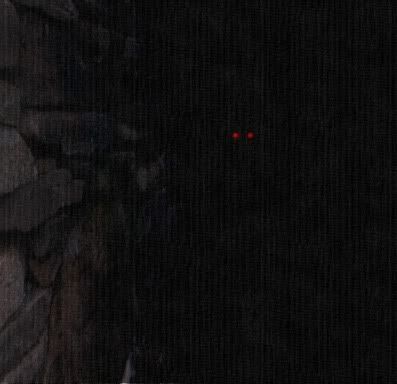
Chapter 3
Gyulyafehér, Hungary
Eve of the Feast of All Saints, 1067 AD
Zila's horse was getting nervous as the sky grew darker; though it was only noon, thick, ominous clouds made it as dark as twilight already on the road alongside the Maros river. Zila understood the horse's anxiety over the rapidly worsening weather, and had his own reasons for wanting to reach his father's house in Gyulyafehér as quickly as possible. However, he prevented it from going any faster than a trot. They had come a long way in the past two weeks, and he didn't want the dapple-grey gelding, his favorite horse, to founder a mere three miles from home.
They rounded the last bend of the gorge that hid the town from the view of the lower valley, and caught the familiar sight of the black tower looming over the town below like some great stone vulture waiting for a meal. Though he had lived in Fehér for nearly a year, Zila had never been entirely at ease there, and the tower had a great deal to do with it. There were mysteries about the tower that demanded explanations, and unlike the villagers, he was not content to simply let them remain mysteries.
However, the one man who seemed to know the most about the tower was the least likely to talk about it. Father Lázárus was quite loquacious on a myriad of other subjects, from theology to history to chess, but whenever the tower was brought up, he would not comment except to warn everyone to stay away from it. Zila thought that the old priest might actually be the one responsible for planting the idea of the tower's haunting into the heads of the villagers, though to what purpose, he could not imagine.
There were other things about the priest that were also mysterious. For a man who claimed to be a simple country priest, who had seldom left the village (a fact Zila verified by asking several other village elders, who all confirmed it), he had an astonishing range of knowledge. He claimed to speak, or at least to read, nine languages, and could quote obscure theological texts from memory. He knew all about the history of the village, and could tell stories of events that happened centuries prior with a level of detail one might expect from an eyewitness. And he was unbeatable at chess, a true master, despite the fact that nobody else in the village had played chess prior to the arrival of the Ákos family. How had he gained such skill without opponents to practice against? It defied logic, but there it was.
Zila had gone so far as to wildly speculate that the man was some kind of deathless Methuselah, who had lived through many ages. But some of the older villagers had known him as a child or as a young man, so that was clearly not the case. After he'd thought it through, Zila had been glad that he hadn't voiced that incredible theory out loud to anyone.
But still, the man was a mystery. The tower was a mystery. Zila sensed that the two were linked; solve one puzzle, and he'd solve the other.
These thoughts occupied him for the time it took him to reach the great stone-and-timber house of the Ákos family. He saw to his horse, and then, chilled to the bone, he headed for the main hall.
As he had hoped, the hall was warm and brightly lit, with the smell of dinner cooking. A small knot of women was gathered around one of the great fireplaces, sitting in chairs and talking quietly.
His wife, Anna, rose awkwardly to greet him. She was heavy with the couple's first child, and so moved slowly, with her hands on her back. Zila smiled and hugged her warmly. Though the marriage had involved politics and diplomacy as much as it had any affection between the two, Zila Ákos and Anna Ják had come to love each other very quickly. They were well-suited to one another.
"How is the baby?" he asked.
"Kicking up a storm," she told him.
"That's good, isn't it?" Zila asked, with all the concern a first-time father could display.
"Of course!" Anna answered, giggling. "Now be quiet, or you'll wake your new baby brother."
"Yes, I'm anxious to meet the little fellow," he said, smiling broadly. "Half a dozen farmers in the lower valley hailed me with the news as I passed." He turned and knelt beside his mother, who was holding a small, swaddled bundle in her lap.
"Quietly," Jolán whispered. "He's sleeping."
"Hello there, little man," Zila said softly. "Looks like you beat your nephew, or maybe niece, into the world by a few weeks. He was born when?"
"Three nights ago," Jolán told him. "We've named him 'Attila'."
Zila smiled. "I hope he's less of a terror to the realm than his namesake was." He stood back up, and looked around the hall. "Where is father?"
"In his study, with Father Lázárus, getting beaten at chess again," Anna said, giggling again.
"Quite handily, too," a voice said from the doorway. Máté Ákos strode into the room, with Lázárus Cornelius close behind. "Forty-seven moves. And then he had the gall to turn down the appointment to the bishopric that I offered him."
That caught everyone by surprise. "You offered him a bishopric?" Zila asked.
"He turned it down?" Jolán asked nearly simultaneously.
Father Lázárus raised his hands and said, "It was quite kind of Count Máté to offer me the position. But I am not the man for the job. As I have told you all before, I am just a simple country priest, and have no higher ambition than to serve God and tend to my tiny flock. I am not an administrator or a politician. So I must, respectfully, decline."
Zila shook his head, surprised, but his father spoke before he could voice his thoughts. "How went your mission to Temes?" he asked.
"Badly," Zila answered. "Imre was entirely agreeable to the match, but Count Elek flatly refused to sanction it. I'm sorry, Sugárka, I really am," he said to his sister, who had been sitting wordlessly by the fire the whole time. "I tried."
Sugárka nodded slowly, with a blank expression on her face. "I know you did, Zila," she said, voice barely above a whisper. "It's not your fault."
"We'll find you a husband, girl, never fear," Máté reassured her.
"No, you won't," she whispered back, tears beginning to fill her eyes. "You'll never find me a husband, and I'll never be married, and I'll never have babies, because we live in a tiny house in a tiny village in a county on the edge of nowhere and nobody even knows I'm here!" She burst into a fit of sobbing.
"Sugárka..." Máté began, concerned. This was completely unlike his daughter, who normally was the most even-tempered young woman imaginable.
But before he could continue, she cut him off, screaming "I hate this place! My sister got to marry a count, because she was in the capital at the royal court where people could see her! My brother got to marry the daughter of a duke, because he could go out looking for her! But nobody ever comes here, and I never go anywhere, and nobody's ever going to meet me! It's this because of this accursed place, and I hate it!"
With that, she abruptly stood and ran from the hall, sobbing.
Máté merely stood by the fire and stared at his boots. He said nothing, but everyone could see what he was thinking. Even as a nobleman, Máté was not rich or well-connected, and his two elder children had been incredibly lucky to make the matches that they had. Sugárka's prospects were indeed poor, though it was likely they would eventually find a young knight somewhere who would take her as a wife.
But when they heard the front doors of the house open, and then slam shut, Máté's head snapped up in alarm. "It's about to storm out there," he said. "She shouldn't be out there alone."
Without another word, Máté, Zila and Lázárus strode for the door, grabbed their cloaks, and headed out into the rapidly darkening night to find the girl before she did something foolish.
Sugárka ran blindly through the streets of the village, and then beyond its outermost buildings, not knowing or caring where she was headed. She was a healthy young woman, and so was able to run very far before she finally lost her breath and had to stop.
She was suddenly aware of what she had done. In her fit of unreasoning, hopeless depression, she had run up the trail to the ruins of old Roman fortress, and was now standing by the black tower. On the southeast corner of the small hilltop, where the tower stood, the hill was a sheer cliff dropping to rocks a hundred feet below.
She stood on the top of the crag, thoughts whirling through her head, as the clouds sank lower and enveloped her in dense mist. She had an idea. What if she climbed to the top of the tower, and then jumped to the rocks below?
Images of her future as an unwanted old maid passed through her mind. Anything would be better than that. Even an early death would be preferable.
"Well, why not?" she asked aloud, sobbing softly. There was really no reason not to do it.
"Why not?" she asked again. She walked unsteadily through the thickening fog towards the tower. She found the door, which was still as her father had left it a year before, pushed open halfway. She ducked under the low stone lintel, and found herself in the pitch-black interior of the tower.
She froze, unable to see anything. She had heard that there were stairways leading upwards, but in the inky darkness, she could not find them. There was no sound but the moaning of the wind outside and her own breathing.
A sudden draft of frigid air swept over her, and she shivered. Her fit of depression had left her as abruptly as it had swept over her, and now all she wanted was to find the way out of the tower and back home. But she had somehow gotten turned around in the darkness, and could not see the doorway. Without any light, she was trapped.
But then she saw a small glimmer of dim light from a few yards away. Two lights, in fact, small and reddish. She moved towards them, trying to see what they might be and hoping they could show her the way out.
Then she saw that they were not lights at all. They were eyes. Red eyes, filled with a fiery gleam, and staring directly at her.
She screamed, and turned and ran from them. She collided painfully with a stone wall, turned and ran in another direction, tripped over something unseen on the floor and fell headlong to the cold stone floor.
Later she could not remember getting up from the fall, and had no idea how she found the door. But she must have, because when Father Lázárus found her, she was outside the tower, running at top speed down the path from the old fortress. Her dress was torn and filthy, her face and hands were bloody where she had skinned them, and she was alternately sobbing and screaming "Red eyes! Red eyes!"
Lázárus wrapped her in his cloak and led the hysterical girl through the fog back to her home. When Sugárka woke the next morning, she remembered nothing. But the red eyes would return and haunt her dreams for years to come.

Last edited:
- 1



